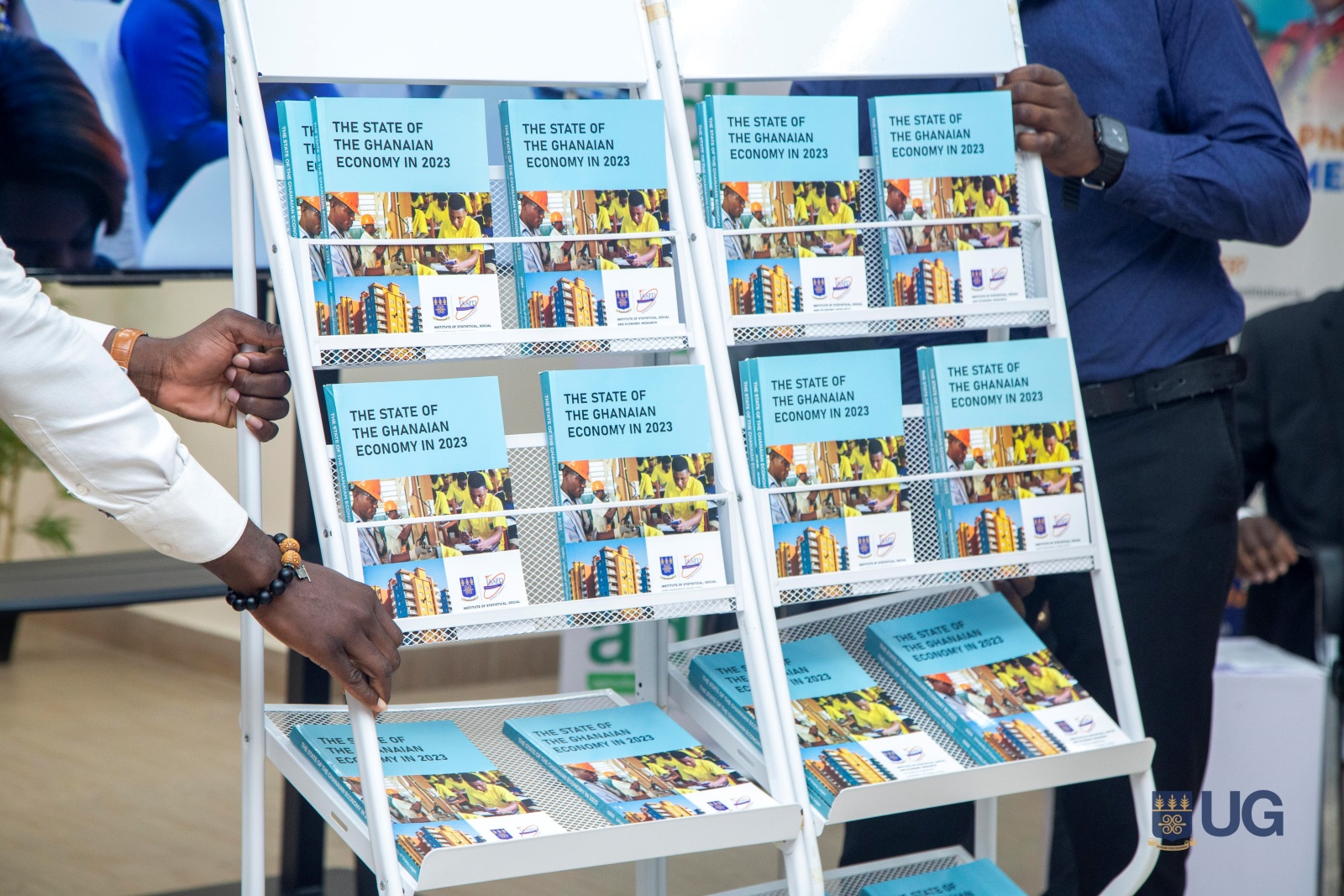Ghana's Economic Outlook Shows Positive Growth Amid Challenges, ISSER’S SGER 2024 Highlights

The Institute of Statistical, Social and Economic Research (ISSER) has officially launched the 33rd edition of the State of the Ghanaian Economy Report (SGER) 2024, unveiling insights into the country's economic performance and outlook.
This comprehensive report provides valuable data and insights, which have long served as a vital decision-making tool for industry players and policymakers.
Mr. Isaac Tetteh, CEO and Founder of BigPay Ghana Limited, who chaired the launch, underlined the value of the report to decision-making, noting that “its scope and comprehensiveness continues to support institutional work, enabling stakeholders to make informed policies based on evidence-backed data and insights that accurately reflect the current state of the country’s economy.”

He also highlighted the role of the report in shaping both short-term and long-term strategies across sectors, pointing out that industry leaders, government bodies and policymakers rely heavily on the insights to address economic challenges and identify growth opportunities. "In a rapidly changing economic landscape, access to reliable, comprehensive data is essential," Mr. Tetteh added.
The 2024 report covers economic growth across several sectors, including fiscal, monetary, international trade, agricultural, industrial and services. Additionally, this year’s report features a special chapter on the role of technology in tax resource mobilisation, as well as a review of Ghana’s Q3 2024 performance.
Presenting an overview of the SGER 2024 at the launch, Prof. Peter Quartey, Director of ISSER, noted that while global economic growth showed a marginal decline, Ghana’s GDP grew by 2.9%. However, he acknowledged this was at a slower pace than in previous years.
Prof. Quartey further elaborated that the services sector continues to be a lead contributor to Ghana’s GDP, driven by robust growth in Information and Communication Technology (ICT). He noted challenges in the industrial and construction sectors due to financial constraints and delayed payments to contractors, cautioning that “the nominal increase in national debt due to exchange rate effects calls for renewed efforts to stabilise the currency.”

On fiscal developments, Prof. Quartey highlighted steady revenue growth, with Ghana's total revenue and grants reaching GH¢176.4 billion, comprising 16.8% of GDP and reflecting a 31.7% year-on-year increase. “Domestic revenue saw modest growth, particularly in non-oil sectors,” he explained, which contributed positively to the country’s fiscal consolidation efforts.
Discussing primary exports, Prof. Quartey noted that gold and cocoa remain essential yet volatile revenue sources, underscoring the importance of regulating illegal mining activities to protect Ghana’s rivers and forests. He was of the strongest opinion that “the environmental cost of gold mining requires regulatory measures.”
The Director also commented on the untapped potential of property rate collection as a substantial revenue source. According to him, Ghana’s tax-to-GDP ratio, estimated at 13.64% in 2024, remains low compared to other African nations and digitalisation efforts in tax collection, such as property rate initiatives at LaMMA, have shown promise but will need scaling to address fiscal shortfalls.
The report also advocated reforms in value chains to reduce reliance on primary commodities, which would add value to domestic products and better adapt the economy to international price volatility. Prof. Quartey stressed that “commitment to the IMF’s fiscal consolidation programme will be crucial in creating a conducive environment for attracting investors.”
Looking forward, the report projects Ghana’s GDP growth to reach between 4.0% and 4.5%, based on Q1 and Q2 data. Prof. Quartey recommended investments in agriculture and industry, two key employment sectors and stressed the importance of fiscal discipline ahead of the 2024 election cycle. He concluded by saying, “Enacting a debt ceiling and curbing unnecessary expenditures will be essential to maintaining Ghana’s recent economic stability.”

The ISSER 2023 State of the Ghanaian Economy Report (SGER) and the 2024 Q3 Performance Review were developed by an expert team of economists and researchers, including Prof. Peter Quartey, Prof. Isaac Osei-Akoto, Prof. Augustin Fosu, Prof. Charles Ackah, Prof. Ama Fenny, Prof. Fred Dzanku, Dr. Andrew Agyei-Holmes, Dr. Richmond Atta-Ankomah, Dr. Ralph Armah, Dr. Nana Ama Asante-Poku, Dr. Gloria Afful-Mensah, Prof. Festus Ebo Turkson, Dr. Daniel Osarfo, Prof. Robert Darko Osei, Dr. Henri Teli, and Dr. James Dzansi. Together, they provided an in-depth analysis of Ghana’s economic performance, offering valuable insights into fiscal stability, growth sectors, and policy recommendations.
